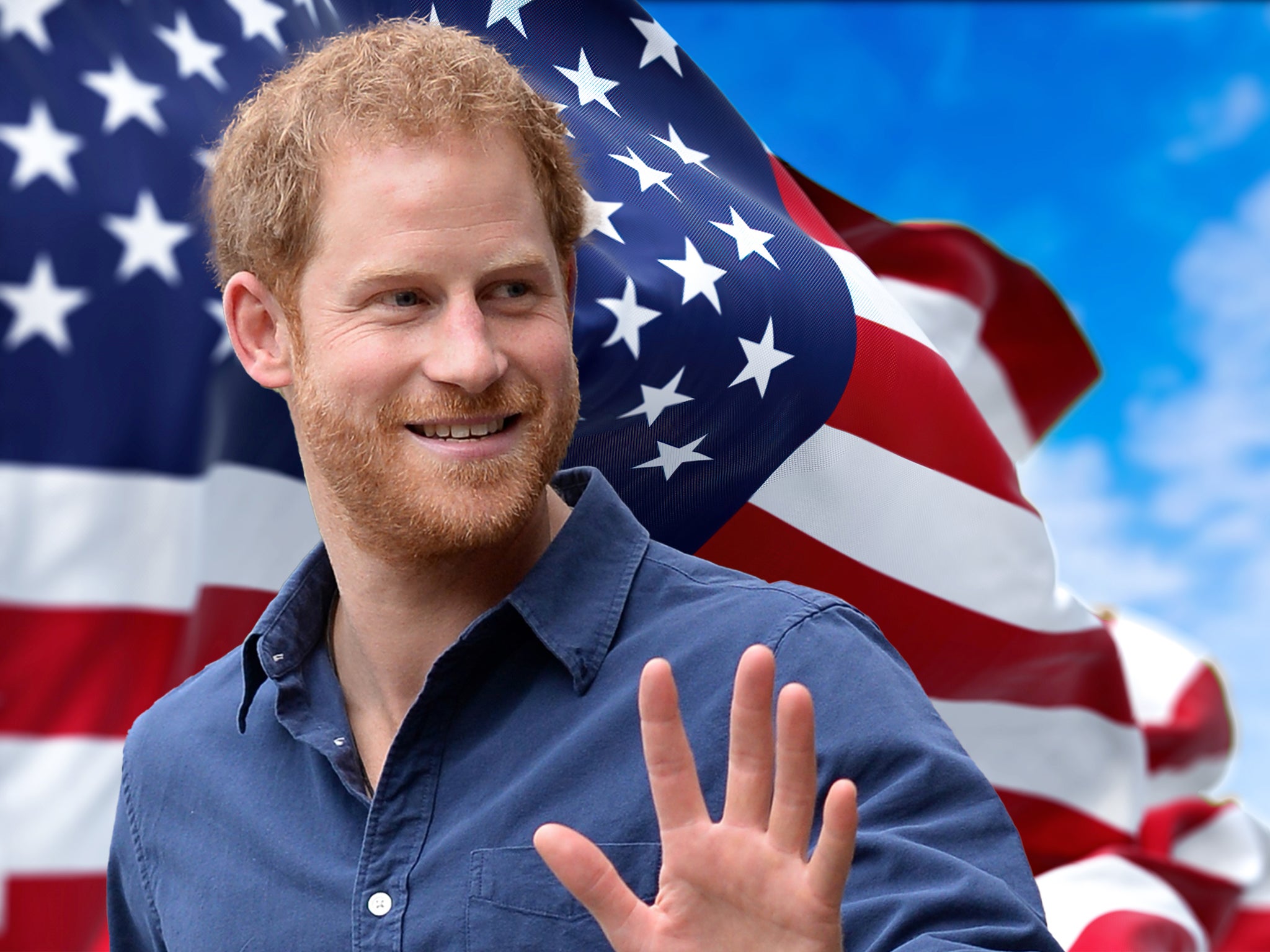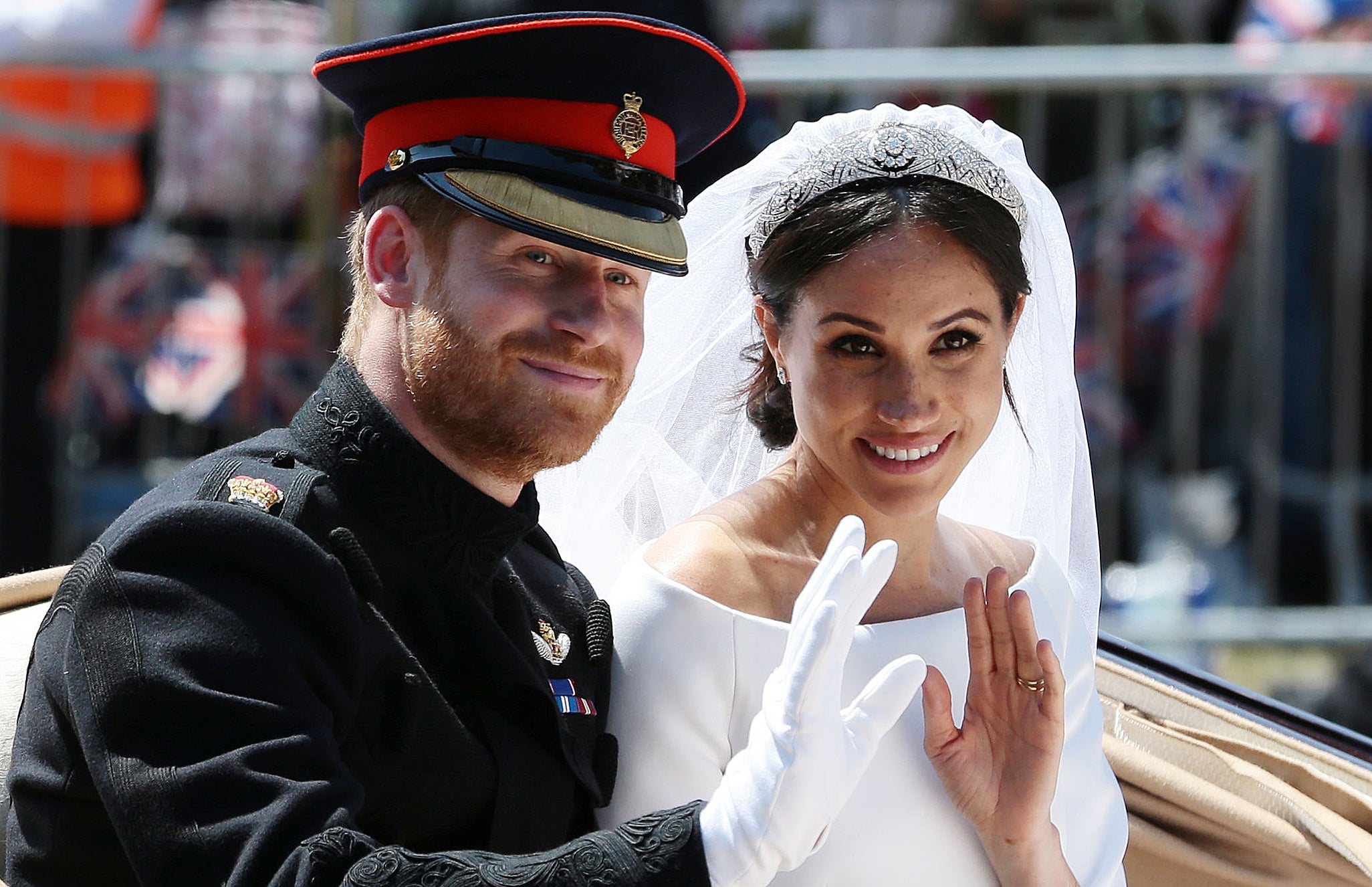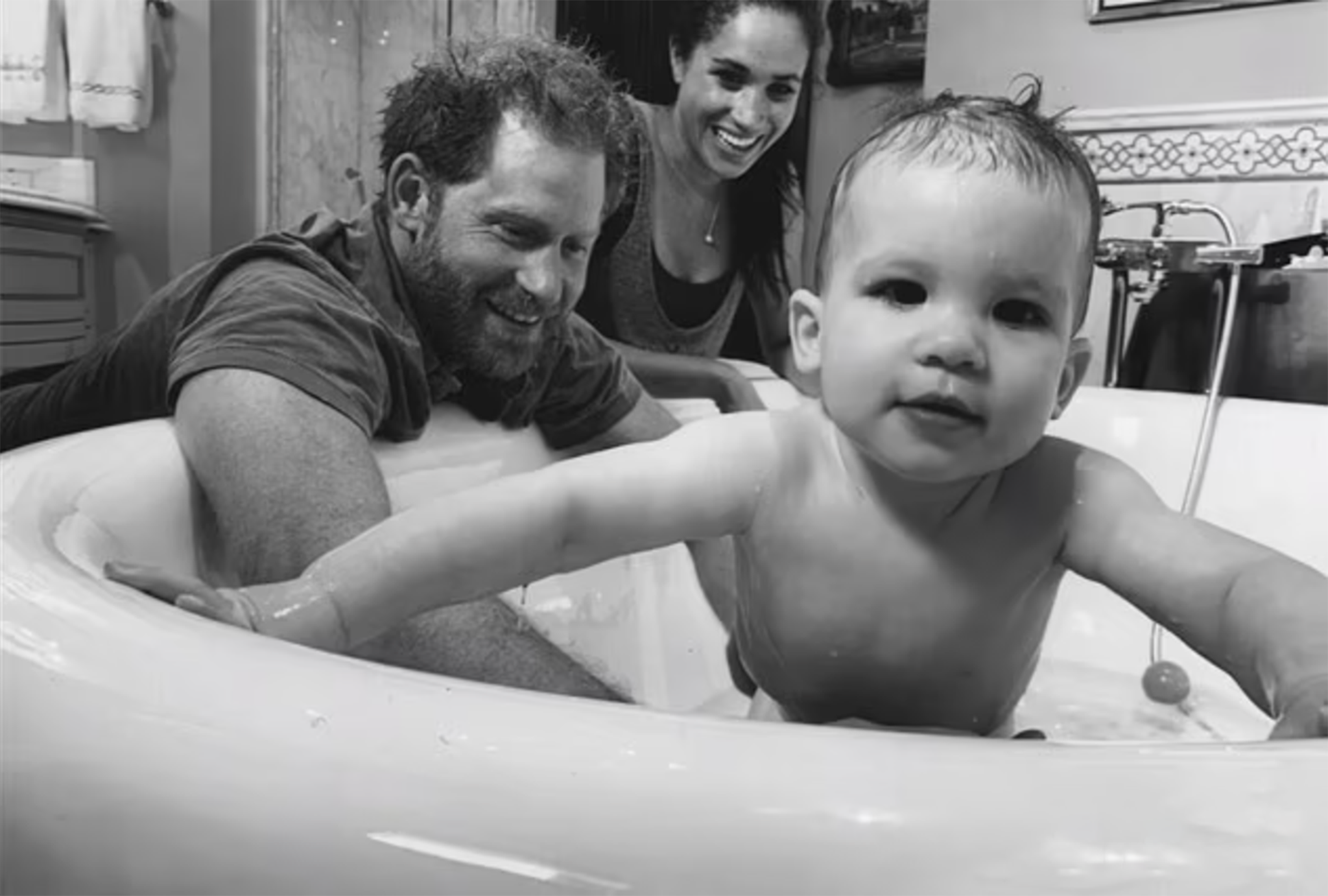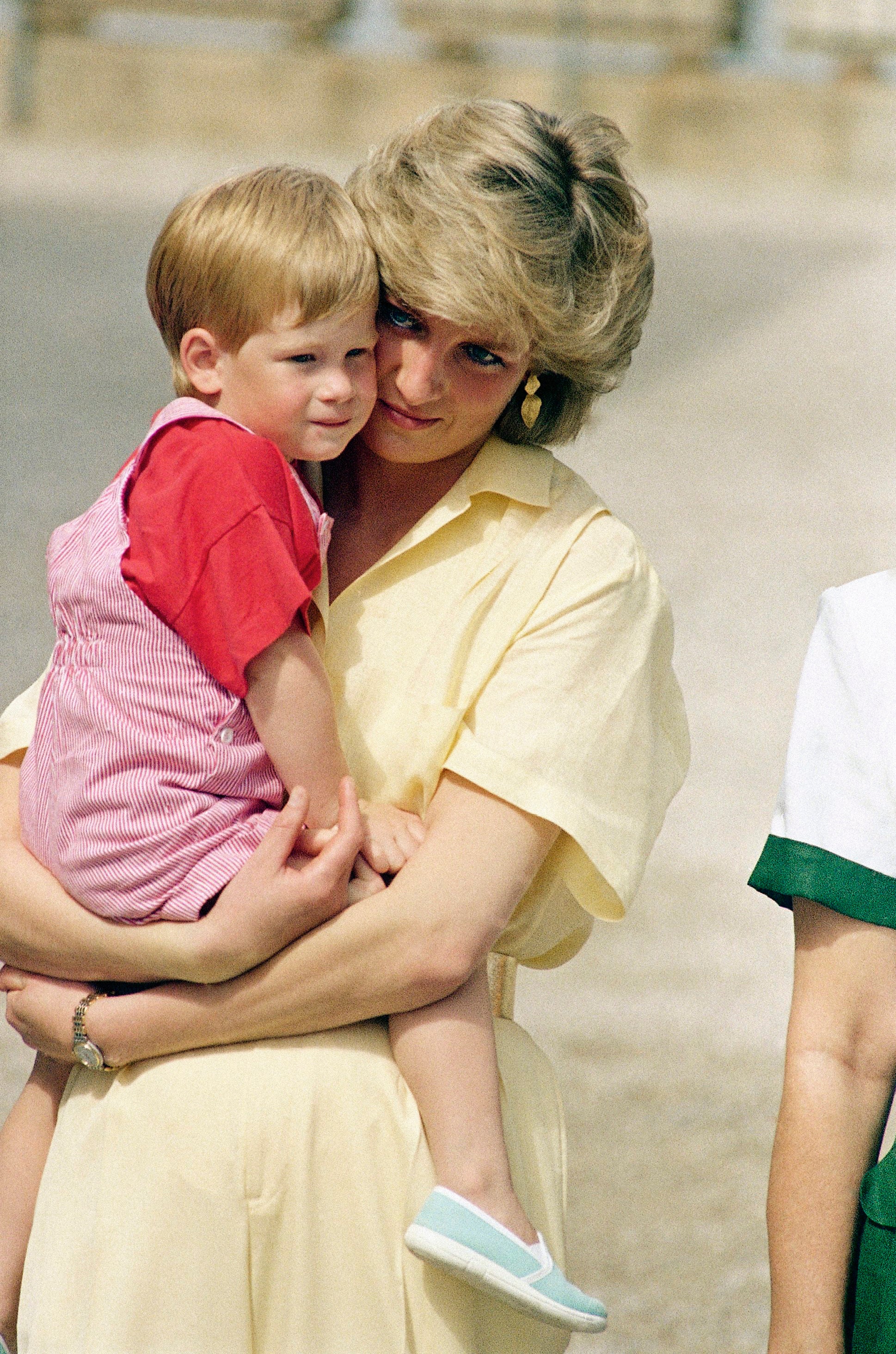Americans welcomed Prince Harry with open arms. Will ‘Spare’ spoil the love story?
A generation of American teens dreamt of marrying Prince Harry and then watched, rapt, as the fairytale they imagined came true before their eyes. Two years later, the nation welcomed the royal combat veteran after he cut his privileged ties for the love of an LA-born actress. But in the aftermath of Prince Harry’s book release and media blitz, Sheila Flynn asks: Can he keep America on his side?

At the Nineties height of the US teen magazine – incidentally, when Meghan Markle was a California schoolgirl – it was not uncommon to see the brooding face of Prince William staring out from glossy covers alongside Hollywood heartthrob glamour shots. Girls from coast to coast debated the merits of marrying either William or Prince Harry, dreaming of the royal weddings they’d someday have when one of the princes inevitably plucked them from obscurity.
As those young royal fans matured, they carried with them an affection for the princes and the British monarchy. They remember where they were when they heard of Princess Diana’s tragic death. They followed the princes’ romantic lives and eagerly devoured footage of their weddings.
When Harry decamped to the US with his American bride, the narrative bore the same hallmarks as America’s very foundation: Rebellion. Self-reliance. Reinvention. Romance.

They’d seen the very fairytale they’d wished for come true before their eyes, and the teen mag generation – along with much of the rest of America – welcomed Harry and Meghan with open arms. The Sussexes leaned in and then some, expertly dispensing morsels of gossip as they cast themselves as philanthropic visionaries.
But two days after the release of Harry’s memoir Spare, a text to a group of 40-year-old high school friends – women now living across the country with different politics and careers – prompted a fast and furious barrage of responses.

“So I loved the Oprah special and the Netflix series. Now with the book, it’s overkill.”
“It’s hard to feel sorry for someone who arguably had/has more advantages and opportunities than almost anyone in the world. He comes across as spoiled, entitled, and out of touch, and frankly, so does his wife.”
“It’s like watching a train wreck in real time.”
Millions have tuned in to Harry’s back-to-back interviews, and sales of Spare have shattered records – but the Duke of Sussex’s media blitz may be testing the limits of America’s paradoxical penchant for royalty. Harry and Meghan, upon their arrival, could not have gotten off to a better start; but they were already playing to a friendly crowd.
“To a broad American audience ... there is something that fascinates about something that the US doesn’t have, which is a royal family,” Erik Goldstein, a Boston University professor of international relations and history, tells The Independent. “It’s not that the US wants a royal family, but it enjoys watching someone else’s.”
When the Sussexes announced their transatlantic move in January 2020, Americans had “goodwill toward their arrival and curiosity about what they were going to do, because this had never happened before. So this was a new experience,” Mr Goldstein says. “And from the moment of their engagement to their marriage to their coming here, they were seen as representing good news and planning to do positive things. So they were an uplift story.”

The couple’s relocation brought the royal family closer to home for Americans in more ways than one. Their openness removed “that whole distance that we always get that feeling about, especially with Charles, whenever we actually hear him open his mouth or hear what he says – the sense that he’s not living on the same planet, it’s totally, very weird,” says Bob Thompson, director of the Bleier Center for Television & Popular Culture at Syracuse University.
American royal fans were hungry for every detail about the mysterious monarchy, and the Sussexes seemed only too eager to oblige. They did so in a way that tapped into not only the palace fascination but also an American overshare culture that pioneered the double-edged animal of reality TV.
“The United States is very good at self-obsession and consuming the self-obsession of others,” Mr Thompson tells The Independent. “And we’ve been helping to mature this for a long, long time ... psychoanalysis, the talking cure, and that kind of thing goes back well over a century, which talked about this confessional kind of thing, bringing it all out in the open – which we manifest in all kinds of popular ways.”
British expat Tamsin Lonsdale, who moved to LA in 2009, calls that American inclination “completely the opposite” of England.
“But having lived in America for so long, everybody has a reality show,” she tells The Independent. “It feels kind of cheesey and kind of naff, but ... it makes for an interesting read.”
Americans did, undeniably, eat up Harry and Meghan’s open-book image, following along with the young parents’ foray into California life.
“What I like [is] he’s so honest. There’s no walls up around him anymore,” says one 69-year-old Florida retiree who asked, as a former New York police detective, that her name not be used.
She was not a lifelong fan of the royal family but instead numbers among the Americans who tuned in only after Meghan came on the scene – a phenomenon Mr Thompson has noticed particularly among younger people. He believes that is “not only because she’s an American, and she’s an actress ... but I think also the idea that she is a biracial American actress marrying into what is considered by many young people anywhere as being anachronistic, archaic institution, the British monarchy.”
He adds: “It was like there was this ongoing story series that they were not following, and that they introduced a new character into the series that became more interesting to that demographic for a number of reasons.”
When Harry and Meghan got married, the White Harte Pub in Woodland Hills, California, hosted a 3am watch party for its mixture of American and expat customers, all thrilled about the perhaps unlikely union. Now, however, those fans are debating amongst themselves about the couple, owner Golriz Moeini tells The Independent.
“There’s some mixed feelings there, for sure,” says Ms Moeini, who bought the pub with her husband from an expat and “actually made it more British.” A fan of the royal family since childhood, her wedding date coincided with the day Princess Diana was buried, Ms Moeini says – and she considered rescheduling.
Most of her fellow Americans, she finds, “are on their side, because they want this fairytale happy ending of this American [who] got married to a prince and basically changed his life ... I think that Americans like that.”

In the wake of the Sussexes’ Netflix series, Spare and Harry’s litany of interviews, though, she says “people are really kind of confused, more than anything, because why? Why is he? Why is this going so fast? It’s almost like he’s got a gun to his head and he’s spilling all the beans.”
She concedes that, “for Americans, it’s normal to share your feelings and to basically spill the beans,” but the recent Harry/Meghan content onslaught has been “a lot.”
“It’s almost as though they want to be on the news every day,” Ms Moeini says “These are people that are saying they wanted to have a regular life and not be in the limelight. And now it’s almost the opposite ... they’re the ones that are orchestrating all of this, and they are the ones that are making sure that they are a topic.”
Mr Goldstein warns that “Americans also have their own attention span, and I think they probably have reached saturation point on this story. There’s nothing new now that’s come out.

“And I think there is also, on the part of some, maybe a bit of disappointment or frustration that this particular memoir is really so, I’m gonna say, self-indulgent on the part of somebody who has such an obviously privileged life.”
He says: “What’s happened to the changing attitude is, instead of seeing, for example, a combat veteran prince, the interviews and the book have also shown an emotionally troubled, middle-aged, privileged person to many who’s going on about his childhood at a time when many people in the particular economic and international climate of the day aren’t looking for a downer.”
Diehard fans, who can’t get enough of any tangential Sussex detail, argue that Harry and Meghan have every right to tell their story and combat alternative narratives; they also point out, correctly, that many other major celebrities hawking a book or project would be doing the same rounds. In Florida, the retired detective imparts some no-nonsense pragmatism.

“He says, ‘I have to raise my family,’ so he’s offered who knows how many millions of dollars for this book and interviews?” she says. “How do you turn that down? I mean, the Queen cut him off, as far as I’m concerned. He is a spare. He wasn’t the heir ... let him live his life, you know what I mean?”
Speaking to The Independent between reading Spare and preparing for her upcoming golf game, she says: “I’m not that far into the book, but a bit of it [I thought was] like, ‘Oh, woe is me,’ like a little self-pity. But I didn’t lose my mother when I was 12. I mean, that impacted the whole rest of his life.”
The legacy of his mother is a weighty factor in many fans’ devotion to Harry. Julie Brillhart, of West Virginia, says much support stems from “wanting to see Princess Diana’s son do good.”
“The way that she treated sick patients, patients with Aids, poor women, she was just there for everybody in a time of need, and she just garnered so much goodwill,” says Ms Brillhart, 49, who helps maintain a Facebook page for royal enthusiasts.
The Florida retiree, speaking of Diana, insists that, “had she come to the States ever, if she lived long enough ... they’re embracing Harry as they would have embraced her.”

Just how long that attitude will last, however, remains up for debate; as Goldstein pointed out, nothing like this has ever happened before. The teen mag generation now falls within the coveted 18-49 marketing demographic, and millions of all ages have tuned in for the Oprah interview, then the Netflix series, then 60 Minutes, then turned around and bought the book.
But as Ms Moeini pointed out, the steady stream of Sussex content is, in fact, a lot.
“It is interesting to see not only how it’s playing out in the control situation of the interviews, but how it will play out in the minds of the culture at large,” asks Thompson. “Will they care? Is this going to be a quick flash in the pan until the next thing happens next week, which is how so much of these things go?
“I mean, he’s everywhere now, it’s hard to ignore. But when that stops next week or the week after, how much residual mythology and how much residual interest will this have ... will this change the way Americans think about the royal family?”
The retired detective, for one, again returns to practicality, highlighting the fact that the Sussexes have already presumably bagged enough deals to keep them out of immediate dire straights.
“With ten million dollars, next doesn’t have to be so soon,” she says. “So they could take a breather.“
Join our commenting forum
Join thought-provoking conversations, follow other Independent readers and see their replies
Comments


Bookmark popover
Removed from bookmarks